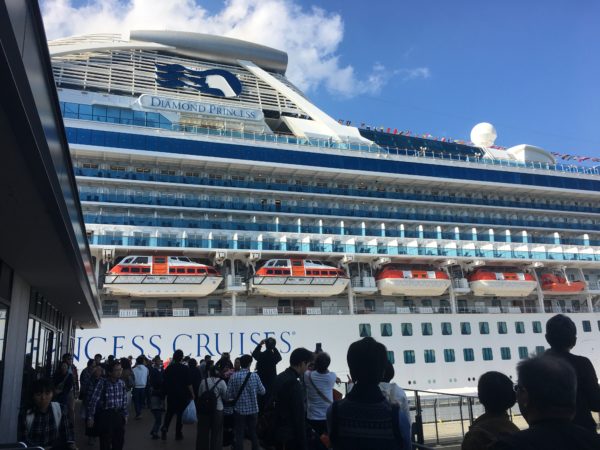
Passengers who tested negative for the new coronavirus on the Diamond Princess cruise ship have begun leaving the quarantined vessel in Japan amid heavy criticism over the country’s handling of the outbreak.
According to a Japanese health expert who visited the cruise ship at the port in Yokohama, the situation on board was “completely chaotic”.
US officials said moves to contain the coronavirus “may not have been sufficient”.
Passengers have described the difficult quarantine situation on the cruise ship.
According to recent reports, at least 542 passengers and crew on the Diamond Princess have so far been infected by the Covid-19 virus – the biggest cluster outside mainland China.
The Diamond Princess was carrying 3,700 people in total.
Coronavirus: China Releases Largest Study on Covid-19 Since Outbreak
China Coronavirus: Signs, Symptoms and Treatment
Covid-19: First Coronavirus Death in Europe
Meanwhile, several nations have evacuated their citizens from the vessel as the number of confirmed cases continues to rise.
On January 16, hundreds of American passengers were removed and placed in quarantine.
The US, the UK, Canada and Australia will place all those released from the Diamond Princess in another 14 days’ quarantine when they return home.
However, several experts have questioned the effectiveness of the quarantine measures on the Diamond Princess.
Japan’s Kentaro Iwata, professor at the infectious diseases division of Kobe University, described the situation on board as “completely inadequate in terms of infection control”.
After visiting the ship, Prof. Kentaro Iwata posted a video to YouTube stating that the quarantine measures he witnessed failed to separate the infected from the healthy.
The professor reported:
- Passengers and crew members were moving freely between the green zone, which is supposedly infection-free, and the virus-hit red zone;
- People were eating together and sharing living quarters;
- A failure to wear protective clothing, including among medical staff
- No professional infection control specialist on board.
Prof. Iwata said he was more afraid of catching the virus on board than he had been working in the field in Africa during the Ebola epidemic and in China during the SARS (severe acute respiratory syndrome) outbreak.
